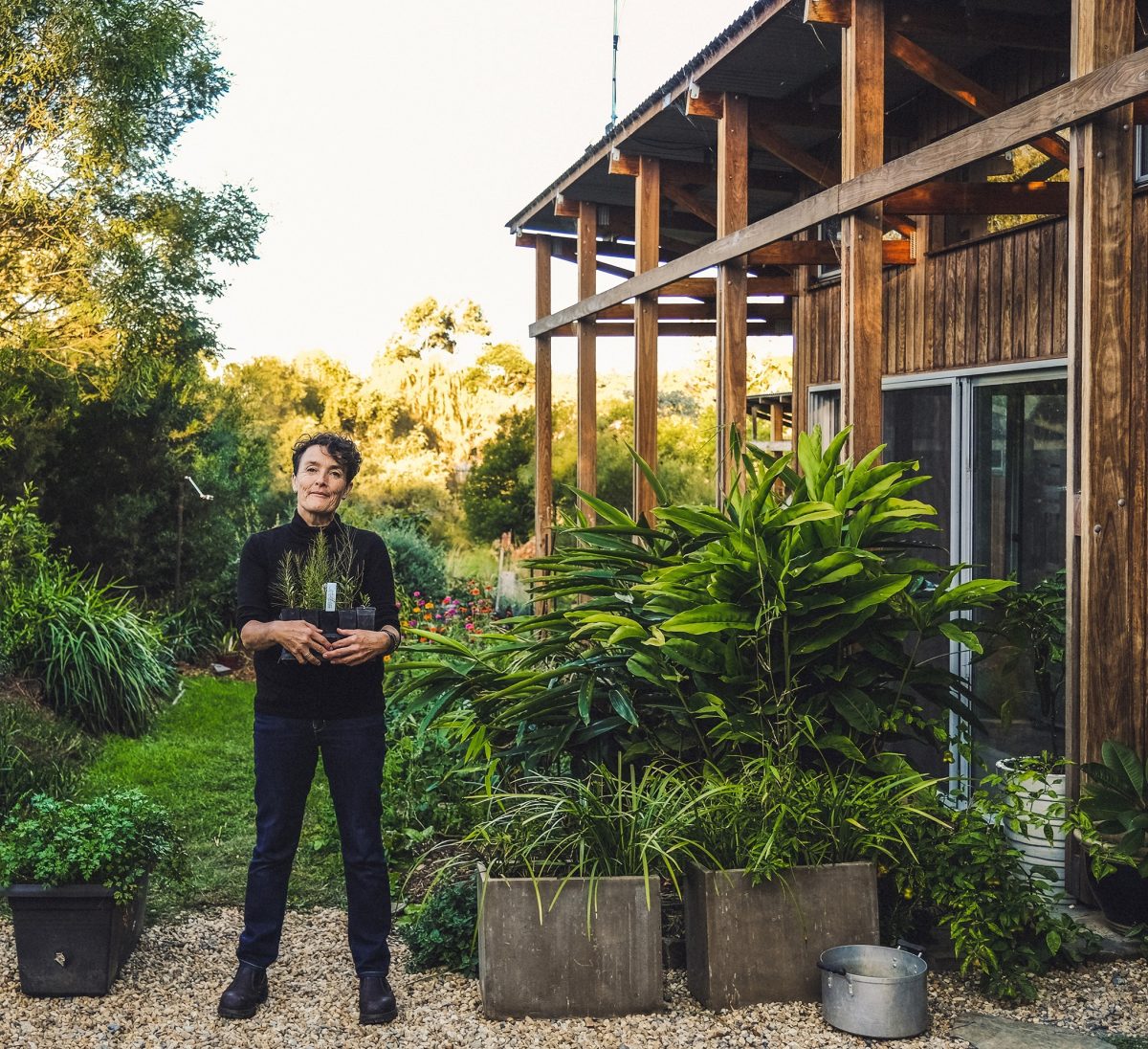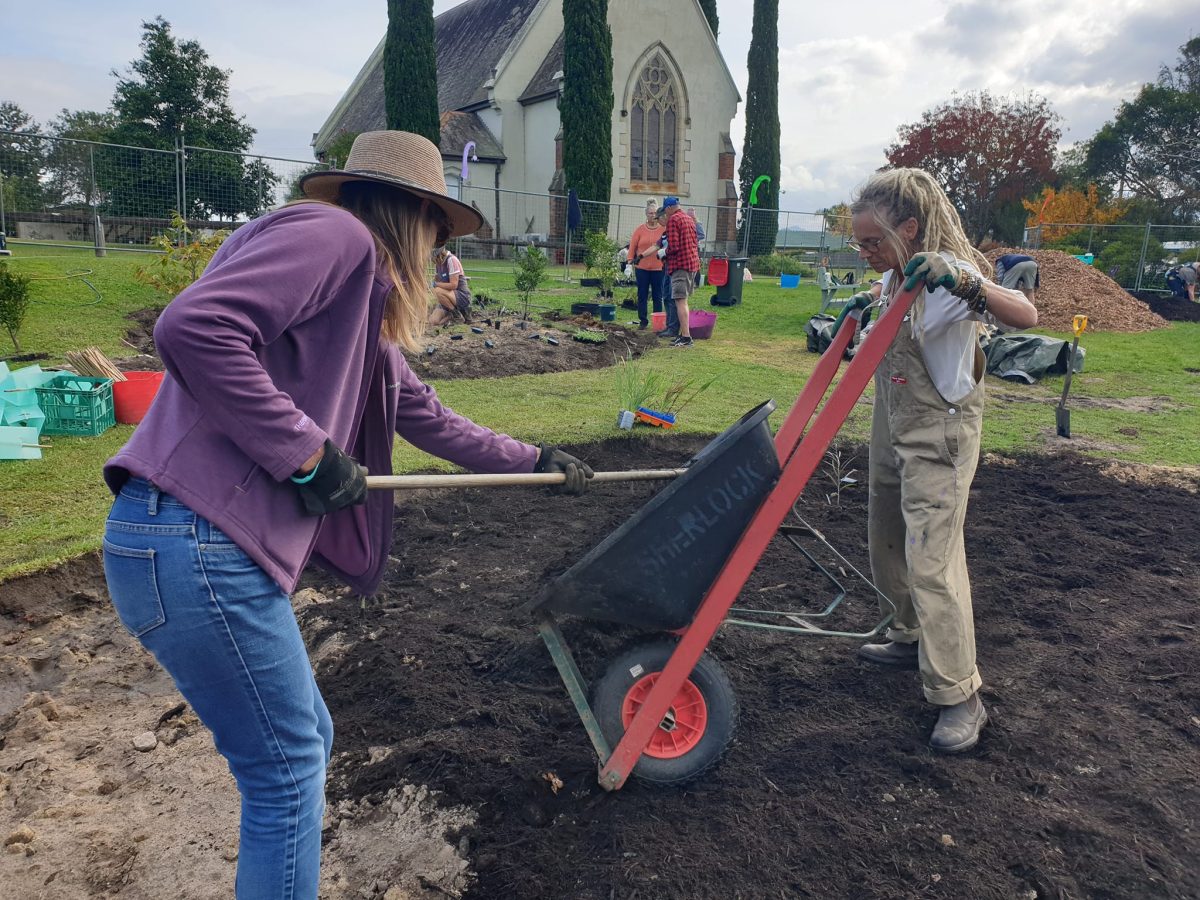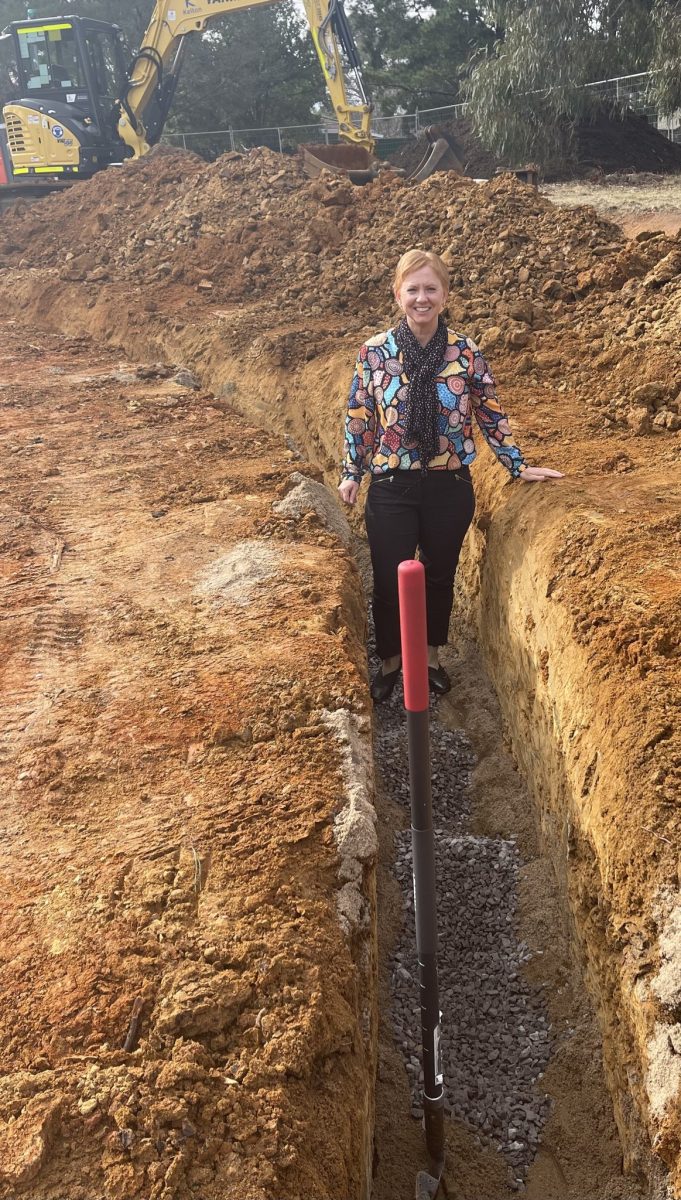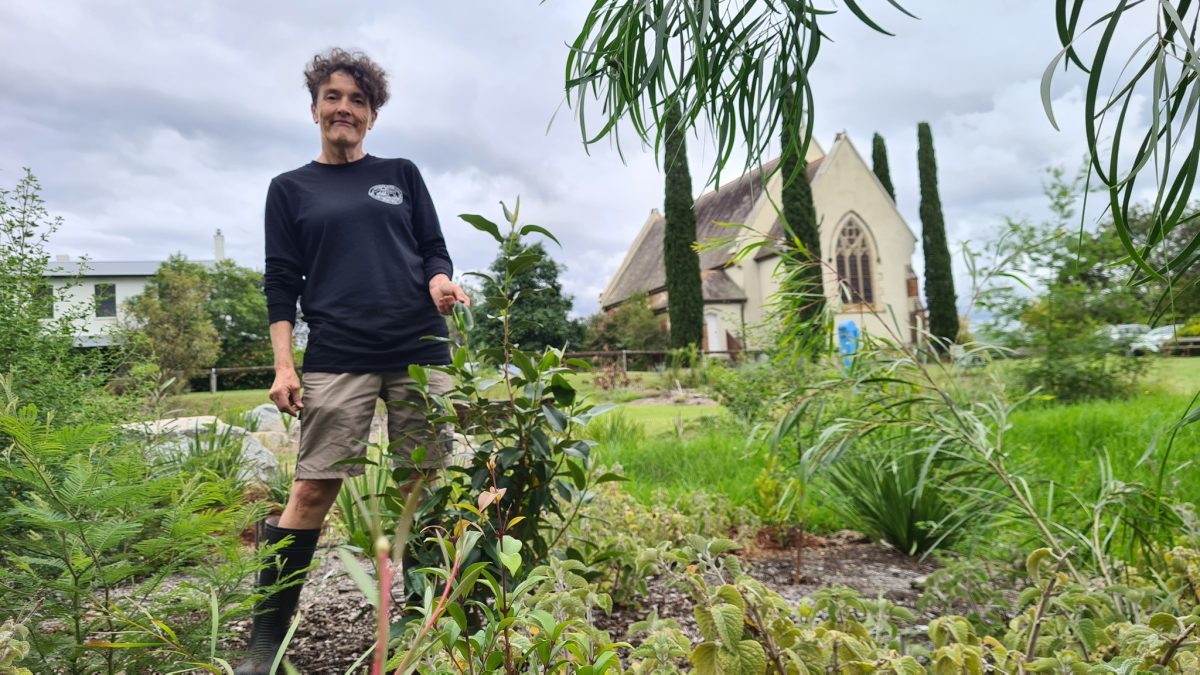
Edwina Robinson founded The Climate Factory in response to the 2019/20 bushfires. Photo: The Climate Factory.
Driving to and from the coast after the devastating ‘Black Summer’ bushfires in 2020 gave Edwina Robinson an epiphany.
We’ll be needing more trees. A lot more trees.
“I was driving back and forth from the coast to Canberra and could just see huge swathes of the landscape dying from drought and climate change, and I just thought, ‘I’ve got to do something’,” she says.
Closer to home, the ACT Government is on its own mission to increase tree canopy cover across the city 30 per cent by 2045 – and is in the process of planting 54,000 new trees by the end of this year alone – all in the name of “climate cooling”.
Not only do trees and plants provide shade and prevent heat building up on hard concrete or tarmac surfaces that make up most of a city, the theory also goes that water evaporation from the leaves removes some of the ambient heat from the atmosphere.
Earlier in the year, the government announced grants of up to $50,000 each for these sorts of climate-cooling projects around public spaces and buildings. Edwina’s organisation, The Climate Factory, was one of four to win.
Every year since 2020, she has rallied members of the community to create “micro-forests” in green spaces in three suburbs of Canberra – Downer, Watson and Holt – as well as at Blackall Park in Queanbeyan and St John’s Parish in Moruya.

Creating the Moruya micro-forest outside the St John’s Parish was a team effort. Photo: The Climate Factory.
The team will use the grant to create another one in Dunlop, in Canberra’s north, in partnership with the Ginninderra Catchment Group and Carbon Positive Australia.
The idea is inspired by ecology method ‘Miyawaki’, named after the late Japanese botanist Akira Miyawaki.
“He created thousands of forests by going out and surveying existing mature forests and choosing all the same ground covers, shrubs, trees, climbers and all sorts of species and then planting them very densely to improve the soil in areas across Japan,” Edwina says.
To make sure the plantings last, the micro-forests also employ a “sub-surface water harvesting” method.
“We dig trenches 800 millimetres to one metre deep and back fill them with sand and gravel to direct the rainwater, and these trenches become like a reservoir for the plant roots.”

Trenches are dug to channel rainwater through the micro-forests. Photo: The Climate Factory.
The first project in Downer employed four plantings per square metre, since backed off to three per square metre to avoid overcrowding.
The Dunlop micro-forest will be based at an open green space behind the local Woolworths, and include 1500 new plants.
“It’s pretty bare at the moment, and looks like it would be really hot and dry if you walked across it in the middle of the summer,” Edwina says.
Kurrajong is the preferred evergreen tree species, based on recent research by the Australian National University (ANU) that found it ideal for urban environments and more likely to cope in the event of hotter and drier conditions.
The bulk of the heavy lifting is done by the community.
All five projects have attracted more than $131,000 in total donations from individuals as well as businesses, while the micro-forests in Watson and Holt were each planted over a long weekend by local volunteers.
“You end up really exhausted at the end, but so happy,” Edwina says.
The community is then tasked to maintain the micro-forest for three years, by which point it should be self-sustaining.
For Dunlop, the Ginninderra Catchment Group is on board to coordinate this help while Carbon Positive Australia will source the plants.

Edwina Robinson in the Moruya micro-forest. Photo: The Climate Factory.
Edwina has also come up with an eight-step model to make it easier for others to follow – from forming a leadership team to the planting – and runs training groups. Together with three others, she has also formed the “Microforest Collective” with a goal to upscale operations.
Ideally, she wants one in every suburb, even if the “more affluent, left-leaning” areas of Canberra are more welcoming for now.
“It’s about giving people hope for the future,” she says.
“When you think about bureaucracies, change happens quite slowly, whereas we’re a community – we can go out and get the funding and partner up with people and experts to make it happen.”
Other successful recipients in the 2024 round of the ACT Government’s Cooling your Suburb grant were Three Mills Bakery, Mulligans Flat Sanctuary and Stepping Stone Cafe.













